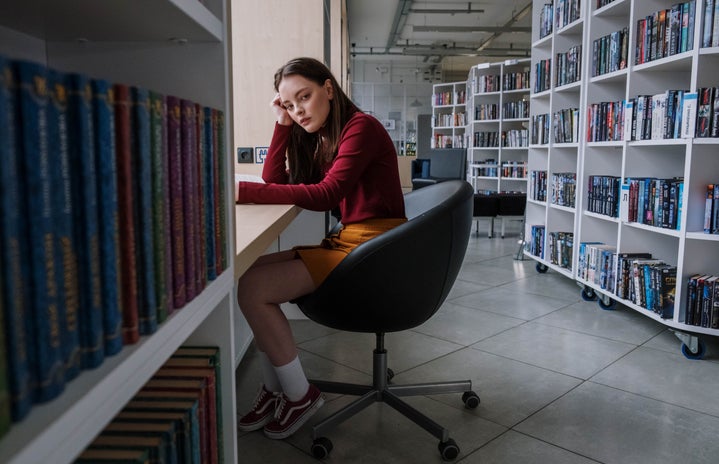Imposter syndrome – you’ve probably heard this term thrown around before.
According to the American Psychology Association, it is defined as believing oneself to be a fraud due to feeling undeserving of one’s success. Those who experience this phenomenon see their accomplishments as the result of luck rather than earned by their own merit, and while not a serious mental illness, it is a formidable form of self-doubt.
At first, I thought of it as a joke – modesty to the utmost extreme. How could authors, celebrities, and even the peers I looked up to the most all suffer from it? How could they not see their achievements as part of themselves, things only made possible because of their incredible efforts? How could people fear or resent their success rather than take pride in it?
Then I entered UCSB, the fifth best public university in the country. The student population is huge, with UCSB educating around 30,000 students, nearly a third of those being white. A first-generation Filipina from suburban Illinois, I understood immediately what my friends in college had told me as I excitedly enrolled in a school across the country.
It was jarring.
Former presidents of their student councils, volunteers, honor roll students – everyone I met only made me feel smaller as they listed their accomplishments. Inferiority infected me, my pessimism permeating every thought and turning into self-hatred as I told myself I couldn’t measure up.
And as my friends vented about their classes and complained about labs and midterms, I wondered what I was really doing here. I was just a normal girl majoring in communication, who loved music and theater in high school, and adored the humanities more than I’ve ever liked STEM. If they were struggling with work I couldn’t even imagine doing, how I was falling behind in classes written off as easy by my peers?
I thought about transferring to the state school my best friends back home went to. That’s how disgusted I was at myself for taking up space that I believed could’ve been held by someone more qualified than me.
As a freshman finishing my first year of college, I still hold these feelings of inadequacy. But I’ve learned that these feelings are normal, especially as part of a racial minority in a predominantly white institution. I’ve realized that my feelings of burnout are shared by so many people around me, even those who used to be high achievers in high school. The pandemic, familial pressure, generational trauma – these factors only amplified my self-doubt as I struggled through fall and winter quarter.
I also learned that I wasn’t alone. I found people that looked like me, that shared similar experiences with me, and who understood me wholly. Finding that community helped me find belonging and made me feel less alone, even in this huge campus where the majority of people could never fully understand the unique experiences that make me who I am.
They made me feel valid.
So, while I don’t think I’ll ever escape the grasp of imposter syndrome, I at least know I have the resources and tools to fight it. That’s the best that I can do, and that is enough.



